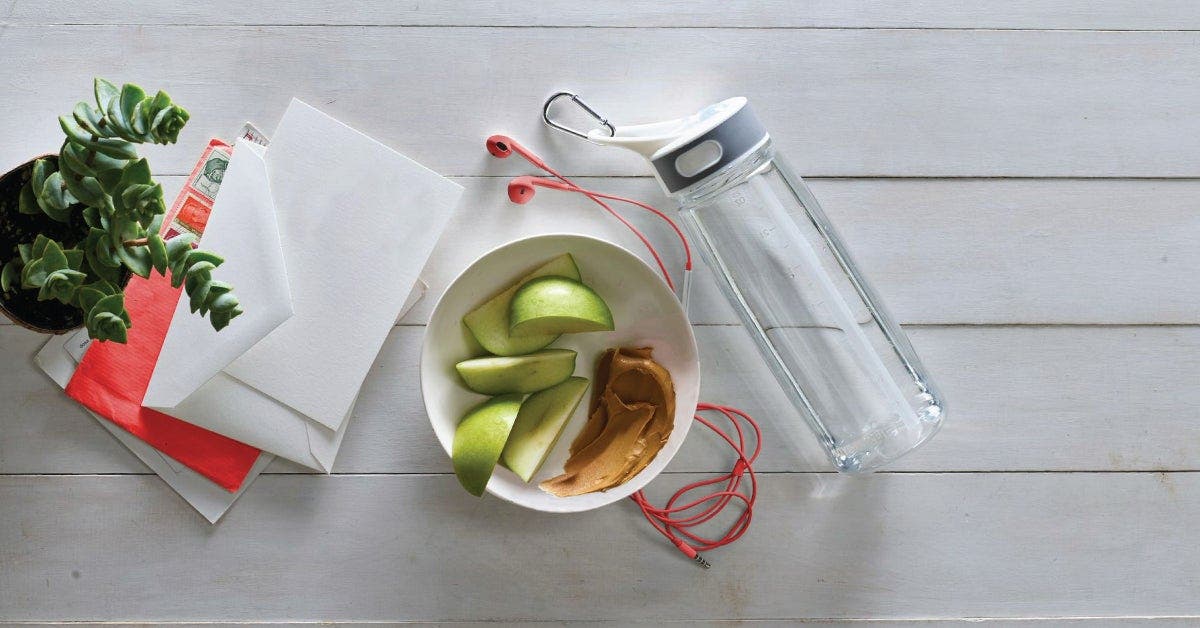How to practice intuitive eating | WW USA
How to practice intuitive eating

Tapping into your body’s eating intuition is a great way to love and accept food for its purpose - nourishment. The challenge is that many people may have lost some of this intuition. As a result, the natural eating rhythms that connect the mind to the body are thrown off. This is where intuitive eating, an evidenced-based approach to anti-dieting, comes in.
Designed by two dietitians (Elyse Resche and Evelyn Tribole), the intuitive eating framework has helped many people break loose from chronic dieting. If you’re someone struggling with eating patterns (either feeling that you’re eating too much, too little, or not eating the greatest), intuitive eating can help you get back in tune with your body and remove the obstacles. This brings you closer to the naturally borned intuitions - eat when hungry and stop when full. But, this is not the only rule.
Here are the key principles in the intuitive eating framework and some of our tips to get you started!
- Reject the Diet Mentality - ditch the diet culture and society views on size, weight, and shape. It’s about your health and well-being.
- Honor Your Hunger - fuel your body with food that will help you feel your best. This includes carbs, protein, fruits, veggies, and healthy fats. When you listen to your body for the first sign of hunger, you ensure that you are fueling your body at the right time. This helps prevent those hunger spikes and helps you to make more conscious decisions with food. Think of your body as a car - it needs gas to run and you don’t want to wait until the gas tank is empty before you fill it up (hopefully not). You plan ahead and fill it up before you’re really in trouble!
- Make Peace with Food - stop the internal battle. If you are craving something, give yourself that grace to eat it. If you forbid certain foods from your diet, you may just keep thinking about it and find yourself from a “binge” later on.
- Challenge the Food Police - say “no” to the food police in your head. Who’s to say that you are “good” because you ate little calories or that you are “bad” for eating those cookies? Breaking free from the food police allows you to return to your own intuition and what is best for you.
- Discover the Satisfaction Factor - think about the way you are eating your meals now. Are you on-the-go? Are you rushing through it during a quick lunch break? This can make it hard for you to enjoy your food. If you are in an inviting environment and eat what you want, you may find an internal pleasure that helps you to feel content and satisfied. With this, you’ll know when you’ve had “enough” of that food.
- Feel Your Fullness - it starts with trusting what you eat. Then, listen for clues and signs that your body gives you. Some will let you know when you are no longer hungry and some will let you know that you are full. Pausing in the middle of your meal may help. Ask yourself “how does this food taste and how hungry am I?”
- Cope with Your Emotions with Kindness - first, let’s be real and say that any type of diet is hard. The restriction itself can trigger many emotions, which can lead to some type of emotional eating. You are not alone in this. We all feel anger, anxiety, loneliness, stress, and boredom at times but food is not the answer. Yes, it may distract or comfort us but it doesn’t last for long. Often, it can lead us to feeling worse. Finding kind ways to nurture and comfort feelings can help us cope with triggers each day. Take a brisk walk, listen to music, or chat with a friend - find what brings you joy!
- Respect Your Body - some things are just in your genes. When you accept your genetic blueprint, you make room to respect your body and set realistic expectations. All bodies deserve respect and you really can be healthy at any size!
- Move and Feel the Difference - think of joyful movement. Exercise does not always have to be about calorie burning. You can stay active and feel good about it. Think about little movements in your day that can bring you joy and give you energy. Perhaps some dancing in the kitchen while you heat something up or a nice morning walk before a busy day?
- Honor Your Health - you do not have to eat a perfect diet to be healthy. It’s a balance between choosing foods that give you nutrients and foods that you think taste good (so if you hate broccoli, just don’t eat it!) One snack or meal that did not go as planned will not impact your progress. Think about the foods you choose each day and overtime. How does it honor your health?
Just like with anything else, changes won’t all happen overnight. Try the above tips without judgment and perhaps work on a few at a time. If you find yourself reverting back into old mindsets and habits, be gentle with yourself and try again. As you progress forward in your journey here at WeightWatchers, this framework can serve as a guide to help you sustain healthy habits. Overtime, you may notice that these principles become second nature to you.
Either way, enjoy the journey and celebrate each win!